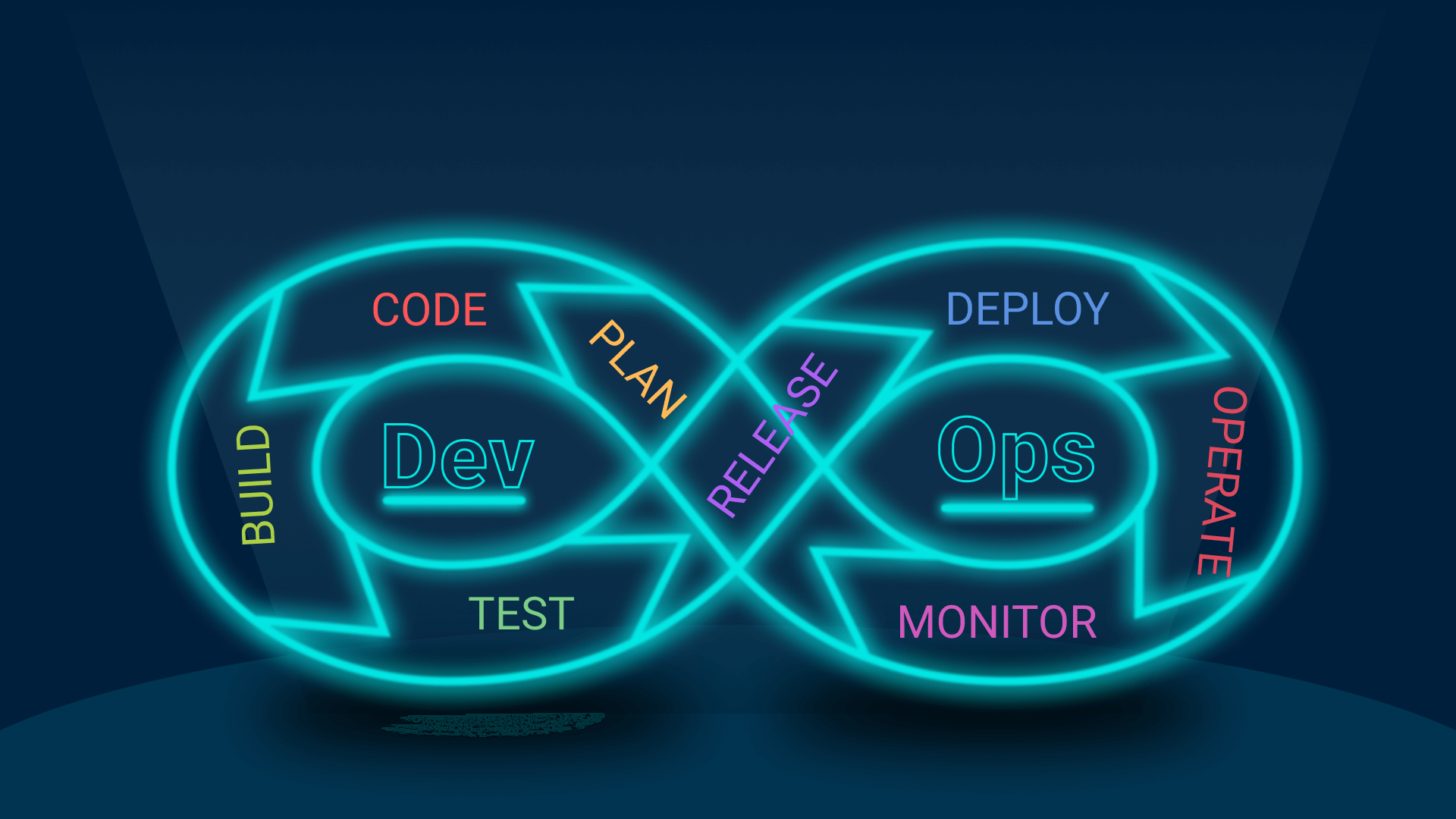
Involvement in DevOps is high, with 77% of developers actively participating
DevOps is a collection of procedures that allow developers to deploy frequent but modest changes to software in a reliable and secure manner, DevOps is a culture that supports these principles via the activities, tools, and specialized platforms that all work together to expedite the software delivery process.
We surveyed 14,000 developers worldwide about their experiences with DevOps between December 2021 and February 2022, and in this article, we will provide some of the most interesting findings from that poll. We will also review data from the "Who is into DevOps?" section of our 19th Edition State of the Developer Nation free report.
- Which DevOps tools and strategies are currently being used by developers
- Organizational approaches to application security.
- What application protection software and whose suppliers are they utilizing
- Developer practices for protecting cloud-based apps and
- Top Security Issues Faced by Developers
We would be pleased to assist you and your team in finding solutions to these DevOps questions.
In what ways may we benefit from DevOps' most recent discoveries?
From a developer's point of view, we examine the current landscape and trends in DevOps in our most recent research titled "Landscape and trends in DevOps." Our goals are to learn more about these engineers, investigate the DevOps practices they are using, and determine whether more widespread adoption of these practices really improves software delivery process performance.
Key findings from the study are as follows:
- DevOps is used by 77% of developers, according to the report.
- More participation in DevOps activities and technology is correlated with better software delivery results.
- Between the third quarter of 2021 and the first quarter of 2022, the average number of DevOps technologies utilized by DevOps professionals rose from 4.2 to 4.6.
The final highlighting indicates a near 10% growth in the number of technologies used by DevOps professionals. However, DevOps professionals are also increasingly introduced to more complex tasks. Taking a closer look at each individual DevOps activity over the last 6 months reveals a consistent increase in participation across the board
Which of you uses DevOps?
To find the underlying cause of this and the following questions, we polled developers to see whether they participate in any of the DevOps-related tasks, from continuous integration and deployment to application and infrastructure monitoring. The focus of this article is on software developers who have achieved professional status in at least one of the fields in which they work. The following observations are drawn entirely from the 19th edition of our State of the Developer Nation report, which was released in the third quarter of 2020. For up-to-the-minute information, please get in touch with us.
For starters, it is important to recognize that many experts have adopted DevOps methods, even more so than one would assume, given the youth of the DevOps movement. Our research shows that 82% of software engineers and developers work with DevOps in some capacity. To put that in perspective, we found that slightly more than half (52%) of non-professionals engage in DevOps activity.
When questioned specifically about their participation in numerous upcoming fields including blockchain applications and quantum computing, just one in five engineers indicated working on DevOps in our study. Not more than 65% consider themselves involved with the field of DevOps, and those who stated they were learning about or interested in DevOps. This indicates that many developers have embraced DevOps principles, even if they do not necessarily use that label to describe themselves.
By breaking down the DevOps lifecycle into its component parts, we can see that developers are responsible for the most essential task, which is the release of regular but minor software updates. Forty percent of respondents use CI, the most common DevOps-related development technique. A further 37% utilize CD, which goes beyond CI by instantly releasing all modified code to staging and production environments.
While the DevOps mindset is gaining popularity, complete automation of the software release process is still a way off. Though 52% of developers make use of CI or CD to improve efficiency, just 25% utilize both to fully automate the process from the time changes are committed to a central repository until they are deployed to production. Surprisingly, it has been shown that developers are still sceptical about completely automated CI/CD processes. The fact that 40% of them approve of code deployments before they go live is indicative of this.
While infrastructure provisioning and administration (27%) remains the purview of IT managers and system administrators, application, and infrastructure monitoring (39%) are a frequent development practice. Similarly, quality assurance specialists (25%) and solution architects (23%), who focus on developing CI/CD pipelines, are responsible for most of the work in this area.
We found that developers' levels of DevOps adoption—their participation in any DevOps-related activity—varied significantly by their organizational responsibilities. To begin, the most reported participation in DevOps activities comes from technical corporate executives such as the CIO, CTO, IT manager, and engineering team head. About 95% of developers with a technical leadership job participate in the DevOps lifecycle, and those individuals are more likely to be participating in more DevOps tasks at once than the typical developer (three vs two).
The next layer of DevOps adopters includes professionals in specialized fields like network security engineers, quality assurance developers, and system administrators. Eighty-six percent to 91% of these types of developers are also involved in DevOps. However, it is worth noting that architects (system, solution, software.) are actively participating in each step of the DevOps lifecycle. Everyone else is concerned with matters inside their own fields of study. The primary emphasis of a system administrator is on the system's infrastructure and its upkeep, whereas a quality assurance engineer will spend most of their time developing automated tests for the system's continuous integration and continuous delivery pipelines.
In addition to the majority of our survey's respondents being front-line programmers and software engineers (61%), 81% of those respondents also participate in DevOps activities, but not at a higher rate than the typical professional (82%). It seems from our data that software developers are eager to implement CI/CD methods but are less interested in operational approaches like application monitoring in production settings. This is more evidence that a full cultural change to DevOps has not yet occurred. Programmers are only responsible for the stages of the product lifecycle related to their position.
The types of software industries that developers work in are also a good predictor of how much they use DevOps principles. The adoption of DevOps also varies significantly amongst industries, much like the adoption of certain jobs. For instance, whereas only over 80% of game developers are interested in DevOps, close to 90% of developers who make extensions for third-party ecosystems or backend services are.
Part of the reason for it is the high bar set for adopting the DevOps paradigm, which requires a great deal of expertise in writing code. Our research shows that developers who engage in DevOps practices have much more coding expertise than their counterparts who do not. Up to 85% of developers working on applications for third-party ecosystems, backend services, or industrial IoT projects have three or more years of coding experience, making them some of the most seasoned professionals in the software sector. Alternatively, no more than 73% of game makers can make that claim.
Even though 82% of desktop app developers have at least three years of experience in software development, we find that they report low use of DevOps approaches. As a result, just a fraction of the potential advantages of DevOps are being realized. Compared to other contexts (like servers), desktop apps get updates less often. Therefore, desktop application projects cannot always benefit from the core DevOps approach of delivering frequent, incremental software upgrades.
To sum up, DevOps is a paradigm change in which engineers from diverse teams collaborate closely to increase the velocity and predictability of software delivery. Despite some substantial variances in the emphasis on individual tasks, the DevOps paradigm is already extensively embraced by professional developers across software industries and organizational positions. Such differences show that full adoption of the DevOps culture has not yet occurred, as many programmers remain preoccupied with their primary responsibilities rather than taking on accountability for other stages of the product life cycle.
Conclusion
The aim of DevOps is to simplify the software delivery process, which is why increased engineers are becoming engaged in DevOps. We surveyed 14,000 developers worldwide about their experiences with DevOps between December 2021 and February 2022. Findings from the poll include which DevOps tools and technologies are currently being used by developers and how they protect their apps. The DevOps mindset is gaining popularity, but complete automation of the software release process is still a way off. Eighty-two percent of software engineers and developers work with DevOps in some capacity.
Developers are skeptical about completely automated CI/CD processes. Just 25% of developers fully automate the process from the time changes are committed to a central repository until they are deployed to production. Software developers' levels of DevOps adoption vary significantly by their organizational responsibilities. Quality assurance specialists (25%) and solution architects (23%) are responsible for most of the work in CI/CD pipelines. Front-line programmers and software engineers also participate in DevOps activities, but not at a higher rate than the typical professional.
DevOps is a paradigm change in which engineers from diverse teams collaborate closely to increase the velocity and predictability of software delivery. Our research shows that developers who engage in DevOps practices have much more coding expertise than their counterparts who do not. As a result, just a fraction of the potential advantages of DevOps are being realized.




